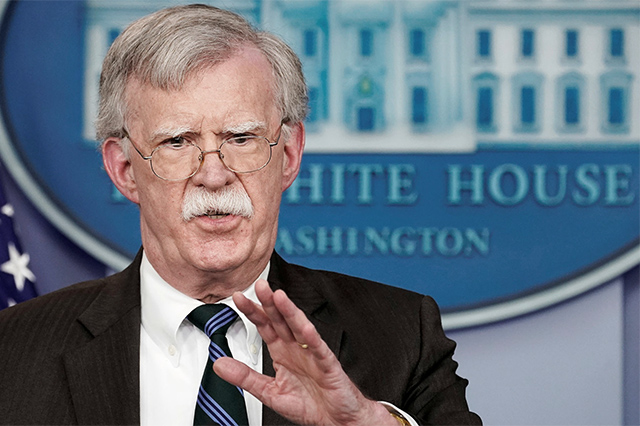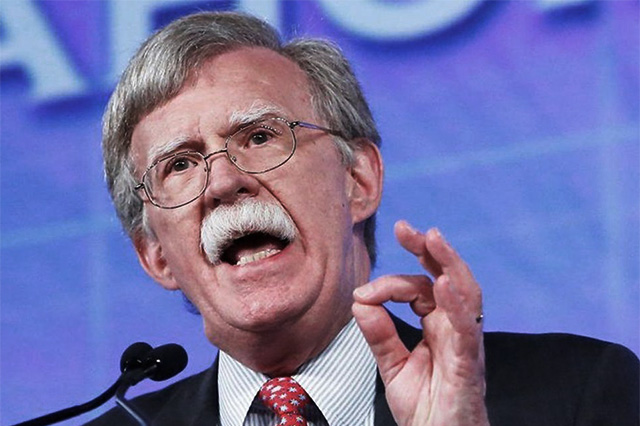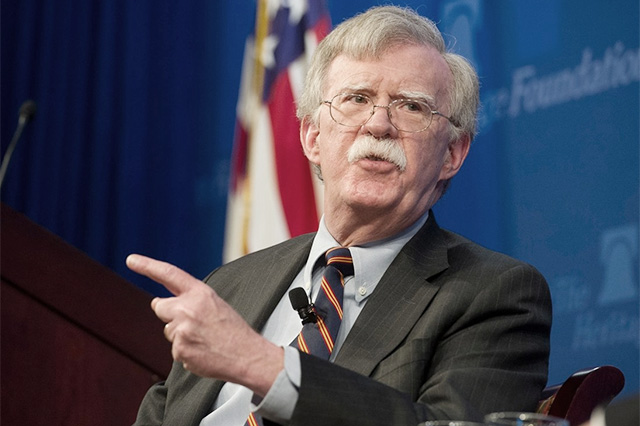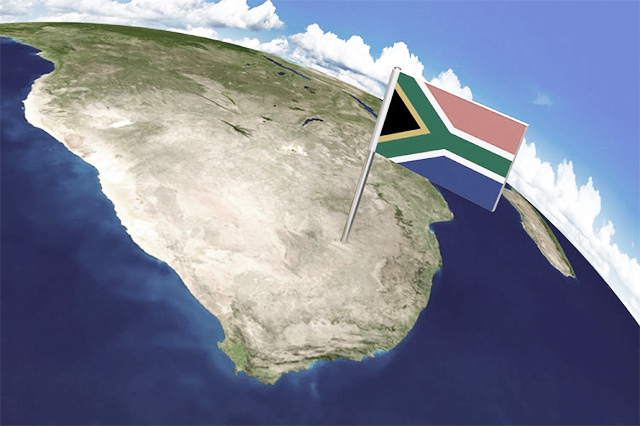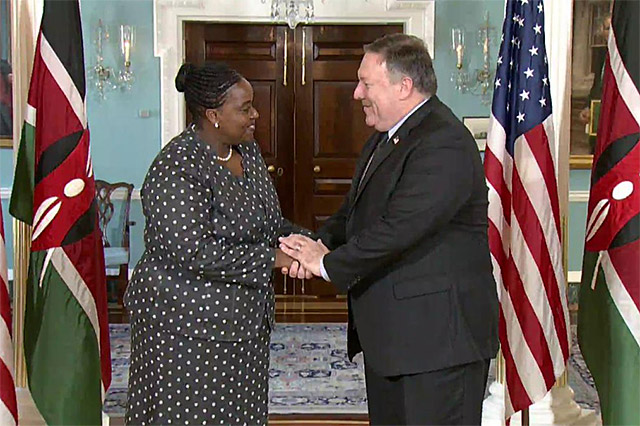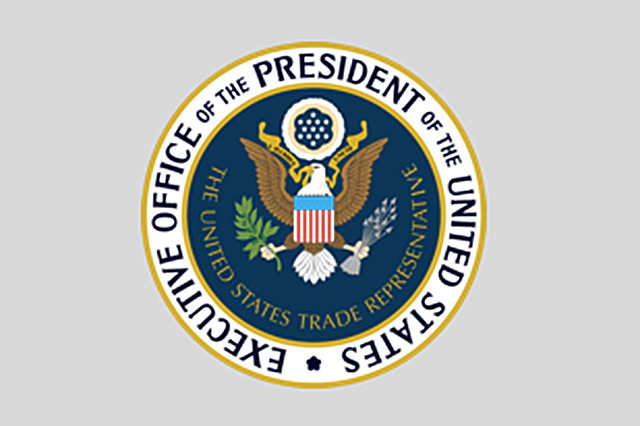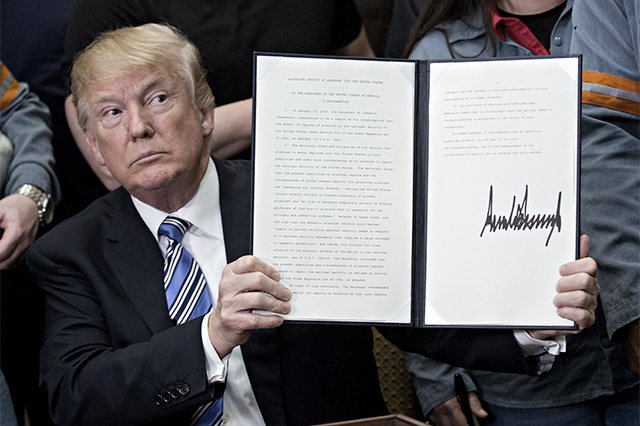'Can trump dump Africa?'
Since Barack Obama was elected US President in 2008, Africa has considered him one of its own and has welcomed the various initiatives, like Power Africa, that have been put forward under his administration.
But on November 8th, rather than having a continuation of the Obama administration, with Hillary Clinton, the American electorate has decided that the Republican candidate Donald Trump should be its 45th president.
Countries and regions worldwide are concerned about the change in leadership in the USA, and the impact it will have on them.
Although many of Trump’s campaign messages, like being anti-free trade and anti-immigration, have found strong support among Americans, they are causing a lot of uncertainty within the global community. Among other things, he has campaigned against globalisation and free trade agreements (FTAs) such as the African Growth and Opportunity Act.
If as US President, he does indeed put into action his campaign rhetoric, the North American Free Trade Agreement (NAFTA) with Canada and Mexico will be reviewed. In addition, the Trans-Pacific Partnership (TPP) with 11 other countries in Asia-Pacific will very likely never see the light of day, while the proposed Transatlantic Trade and Investment Partnership (TTIP) with Europe will also probably not be pursued further. To top it all off, Trump intends to raise trade barriers on goods originating from China and Mexico by imposing a 45% and 35% tariff, respectively.
These drastic actions will spur the US trade partners to retaliate. China has hinted that if Trump raises barriers to Chinese goods, it will respond by cancelling airplane orders from Boeing, blocking Apple products, and restricting agricultural commodities from the US. If American companies do not have access to an important market like China, not only will their corporate earnings drop dramatically in the short term, but they will be even more reluctant to invest within America in the long term. This will undermine the US economic recovery and drag the global economy into recession.
Africa is already suffering from the global economic slowdown that led to a steep drop in commodity prices. If the global economy falls further into recession, Africa will be collateral damage.
According to the US Census Bureau, US-Africa trade in 2014 was just US$72bn. Although this is relatively negligible for the United States, representing only about 1.4% of US global trade, it is relatively significant for many African economies. The main US trading partners in Africa are Angola, Nigeria and South Africa. For these respective countries, trade with the US represents a significant 9.2%, 6.5% and 7.1% of their global trade. Hence, if the US adopts protectionist measures for global trade, these African countries will be significantly affected.
The US and Africa have a trade agreement in place with AGOA that was signed by US President Bill Clinton in 2000. Although trade under AGOA peaked at $100bn in 2008, it has been on a downtrend. Currently, AGOA encompasses 38 African countries and trade in 2015 was a mere $38bn. If the Trump administration adopts a protectionist approach and rescinds its FTAs, AGOA may be one of the casualties. But looking deeper at the statistics, although the US trade deficit under AGOA reached a maximum of $64bn in 2008, this decreased to just $2bn in 2015. Moreover, out of the 38 countries under AGOA, the United States is in fact enjoying a trade surplus position with 29 countries, while having a deficit with only nine countries.
For some high-growth African countries like Ethiopia, it was under the increasing engagement of the Obama administration that AGOA has gotten a new impetus. For Ethiopia, AGOA is helping to develop its manufacturing base for textile and apparel, as well as increase its exports to the US. Moreover, it also helped to attract $4bn worth of US investments in 2015. For the United States, trading with Ethiopia has brought about great benefits, with a trade surplus of $1.7bn and $1.6bn in 2014 and 2015 respectively.
This was due mainly to the sale of transportation equipment like Boeing airplanes to Ethiopian Airlines. Hence, being in a trade surplus position with many African countries and with increasing investments, which will yield future benefits, revoking AGOA will be detrimental to the US, both in terms of its future engagement as well as trade with the African continent.
The engagement of the Obama administration has been greatly welcomed as a counterbalance to the increasing influence of Asian countries, especially China. America has tried to have deeper interactions with Africa by twice organising the US-Africa Business Forum in 2014 and 2016. But if Trump does proceed with his protectionist plans, it will only push Africa further towards Asia.
The top three Asian economies – China, India and Japan – have regular interactions with high-level African government officials during their regular forums. Japan was first, organising the Tokyo International Conference on African Development (TICAD) in 1993. In August 2016, the sixth edition of TICAD was organised in Nairobi, Kenya, where Japanese Prime Minister Shinzo Abe met 32 heads of state and government. Since 2000, China also holds a regular Ministerial Conference with the Forum on China-Africa Cooperation (FOCAC) every three years; the last one was organised in South Africa in December 2015. As for India, it has enhanced its engagement with Africa by holding the India-Africa Forum Summit (IAFS) three times since 2008. During the last IAFS in 2015, the Indian Prime Minister Narendra Modi welcomed 41 leaders of the African Union in New Delhi.
In their recent forums, China, India and Japan committed investments worth $60bn, $10bn and $30bn, respectively, for the development of Africa in the coming years. These staggering amounts dwarf Obama’s $7bn Power Africa initiative. Moreover, trade between Africa and just two of the big emerging Asian economies, China and India, is not only on an uptrend, but reached nearly $300bn in 2014. This is more than four times the 2014 US-Africa trade.
Despite the uncertain global economic environment, Africa is on the move. If under the Trump administration, the United States turns its back on the continent, it will miss out on its economic potential. Africa will turn further towards Asia, and in partnership with the various Asian governments and companies, African development will continue to thrive.
- The author, Richard Li, is a partner of Steel Advisory Partners, Singapore. This article was written specifically for NTU-SBF Centre for African Studies, a trilateral platform for government, business and academia to promote knowledge and expertise on Africa, established by Nanyang Technological University and the Singapore Business Federation.




